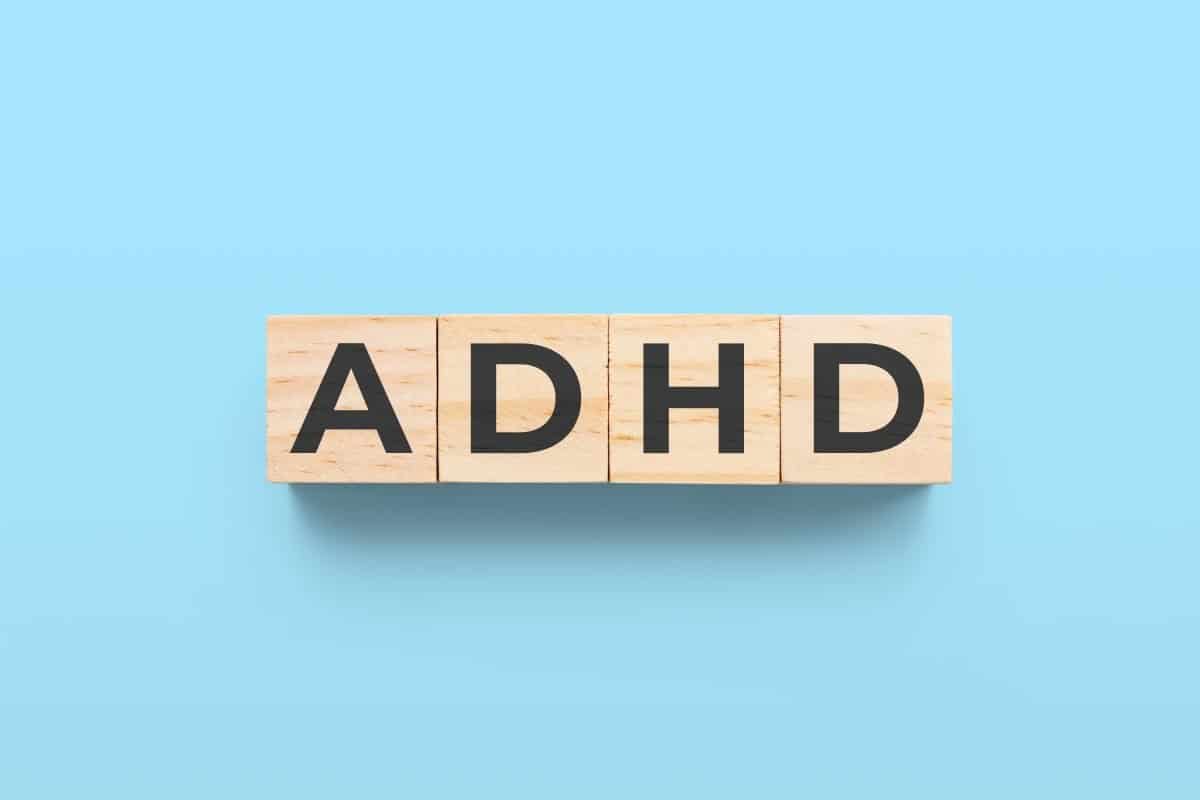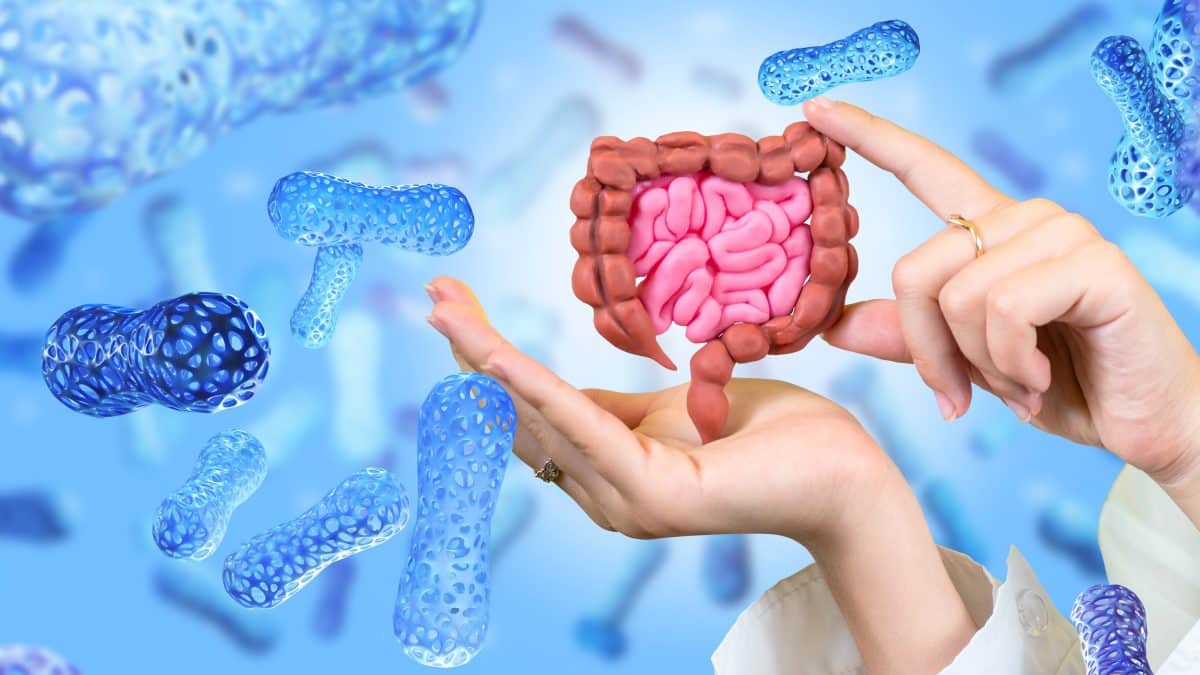ADHD and IBS (With practical tips for managing IBS symptoms)
- Lifestyle Advice
If you are living with both ADHD and IBS, it can be challenging as these conditions often intertwine, complicating symptom management.
In this blog, we delve into the evidence base for the links between ADHD and IBS and provide practical tips for managing these overlapping conditions.

What is ADHD?
Attention Deficit Hyperactivity Disorder (ADHD) is a neurodevelopmental disorder that affects both children and adults.
Characteristics of ADHD include a persistent pattern of inattention, hyperactivity, and impulsivity that interferes with functioning or development (1).
ADHD can significantly affect various aspects of your life. For example, you may have difficulties with daily functioning, such as:
- Academic or occupational performance
- Personal relationships
- Finances
- Taking risks, e.g., driving dangerously.
What are the symptoms of ADHD?
We can split the symptoms of ADHD into two main categories: inattention and hyperactivity-impulsivity.
Symptoms of inattention may include (1):
- Easily distracted
- Difficulty sustaining attention in tasks.
- Often does not listen when spoken to directly.
- Difficulty following through on instructions / struggling to finish tasks
- Difficulty organizing tasks and activities.
- Losing things frequently
- Being forgetful in daily activities.
Some of the symptoms of hyperactivity and impulsiveness are (1):
- Fidgeting
- Restlessness
- Excessive talking
- Difficulty waiting your turn.
- Often interrupting others (e.g., in conversations, games, or activities).
- Acting without thinking
As you can see, there is a vast range of symptoms for ADHD. However, not everybody with ADHD will experience these in the same way.
How is ADHD diagnosed?
Healthcare professionals, such as psychiatrists, psychologists, or pediatricians (for children), conduct comprehensive evaluations to diagnose ADHD.
The evaluation typically includes multiple steps to ensure an accurate diagnosis, considering the complexity and variability of the disorder.
Although you can be diagnosed with ADHD later in life, the current criteria require that symptoms must have been present since childhood (1).
What is ADHD linked to?
ADHD often coexists with other conditions. Some of the most common ones are (2, 3):
- Anxiety Disorders
- Depression
- Bipolar Disorder
- Oppositional Defiant Disorder (ODD)
- Dyslexia
- Insomnia
- Autism Spectrum Disorder (ASD)
- Substance Use Disorders (e.g., alcohol, drugs)
- IBS
What is the link between ADHD and IBS?
Researchers have found that people with ADHD have a higher chance of developing IBS and constipation, especially in females (4, 5).
Although these two conditions are linked, this does not mean one causes the other. The reasons for the link between ADHD and IBS are not fully understood.
However, some of the potential contributors are:
- Genetics
- Changes to the microbiome
- Brain signaling
- Stress and anxiety
- Medications
How genetics may cause the IBS – ADHD link
One potential link between ADHD and IBS may be genetics. Scientists have suggested that specific genes could heighten an individual’s likelihood of developing both ADHD and IBS.
One study also showed that children were more likely to have ADHD and IBS if their parents had IBS, which may suggest that ADHD and IBS share some genetic factors (6).
However, some other environmental factors may have been at play here, such as diet, stress, and patterns of behavior that may also be shared in the family environment.
How is your microbiome in ADHD linked to IBS?
Some researchers suggest that changes to gut bacteria (microbiome) may be involved in both your ADHD and IBS (7, 8).
However, most of our studies on ADHD are based on mouse models, so we cannot rely on them, as we know mice are quite different from humans!
Many people with IBS choose to try a probiotic to help their gut health, but the data for probiotic use in ADHD is less clear – we don’t know which the best strains are or if they are effective.
You can read more about probiotics for IBS in our blog: Probiotics for IBS.

The role of the gut-brain axis in causing IBS in ADHD sufferers
Brain signaling
Signaling in your brain uses chemicals such as serotonin and dopamine, and both play a role in ADHD and IBS.
Serotonin is best known for its effect on mood regulation, but it also affects gut motility (9).
Studies have shown that abnormalities in serotonin signaling may contribute to both ADHD and IBS, suggesting a common neurochemical pathway (10, 11).
Dopamine also affects gut motility and sensitivity, which could potentially explain why people with ADHD are more likely to experience gastrointestinal symptoms (10).
Can stress and anxiety play a role?
Another possible explanation is that stress and anxiety may be a common factor in both ADHD and IBS.
People with ADHD often experience high levels of stress, which could lead to changes in gut function, leading to exacerbated IBS symptoms (12).
You can read more about the link between IBS and mental health in our blog: Stress, anxiety, depression and IBS: Managing Mental Health to Help IBS.
ADHD medications and IBS
If you are taking medications for your ADHD, you might be wondering if this could be affecting your IBS.
ADHD medications can sometimes cause gastrointestinal side effects, which might mimic or exacerbate symptoms similar to those seen in IBS.
Here is an overview of the potential gastrointestinal side effects associated with common ADHD medications:
| Common ADHD Medication | Potential gastrointestinal side effects (13) |
| Methylphenidate (Ritalin, Concerta) | NauseaStomach painDiarrhea or constipation |
| Lisdexamfetamine (Vyvanse) | NauseaDiarrhea |
| Dexamfetamine (Dexedrine) | NauseaStomach painDiarrhea |
| Atomoxetine (Strattera) | Nausea/vomitingStomach painConstipation |
| Guanfacine (Intuniv) | ConstipationStomach pain |
Many of these medications can also cause a loss of appetite, leading to weight loss. If you struggle to gain weight with IBS, check out our blog: How to increase weight with IBS.
If your doctor has prescribed medication to support you in managing your ADHD symptoms, you’ll probably be given small doses at first, which they may gradually increase.
You will need to see a GP for regular check-ups to ensure the treatment works effectively and check for signs of any side effects or problems.
Practical tips for managing IBS with ADHD
Managing IBS is difficult, never mind having ADHD to contend with on top of this.
Whilst you can search our other blog posts for general IBS advice, there are some areas that you may find particularly challenging if you have IBS.
Below, we have given you some practical pointers that will help you tackle some of the barriers that people with ADHD may struggle with.
- Set alarms on your phone to remind you to eat at regular times
- Maintain a consistent bedtime routine to help with sleep
- Use a marked water bottle to track your fluid intake
- Leave glasses of water around the house in commonly passed places to remind you to drink
- Practice mindfulness or relaxation techniques – schedule this in your diary
- Discuss with your doctor how your ADHD medications might affect your IBS. They may suggest a change if you are experiencing gut side effects.
- Enlist the help of family and friends to support your routines and dietary changes
- Work with a dietitian who can help you develop specific goals to meet your needs
Summary
Shared genetic, neurochemical, and psychological factors contribute to the link between ADHD and IBS.
ADHD medications may also be affecting your gut symptoms. Consider discussing this with your healthcare provider, who can advise you on the best treatment for your needs.
By establishing routines, making dietary adjustments, managing stress, and seeking professional support, individuals with ADHD can effectively alleviate IBS symptoms.